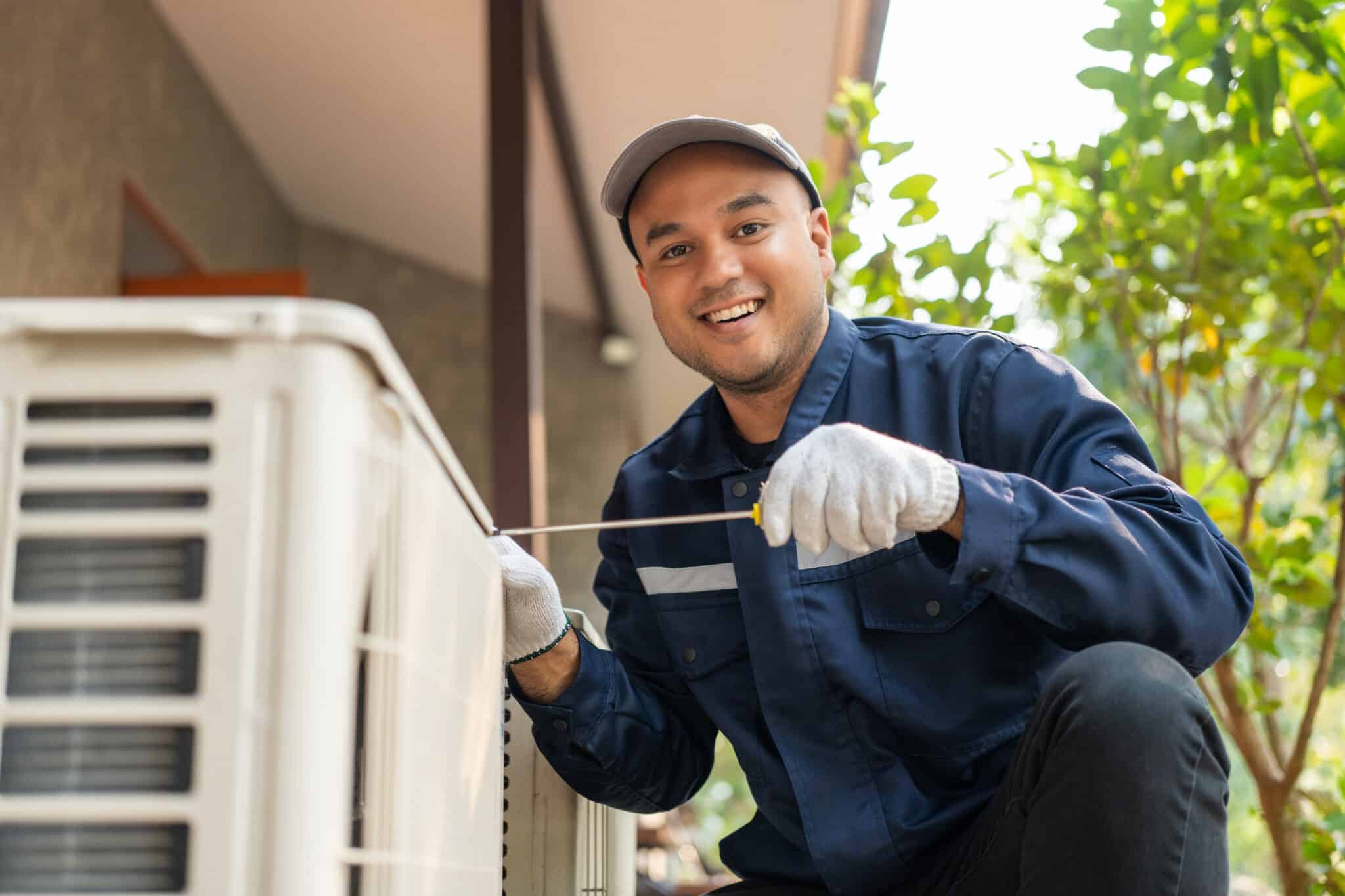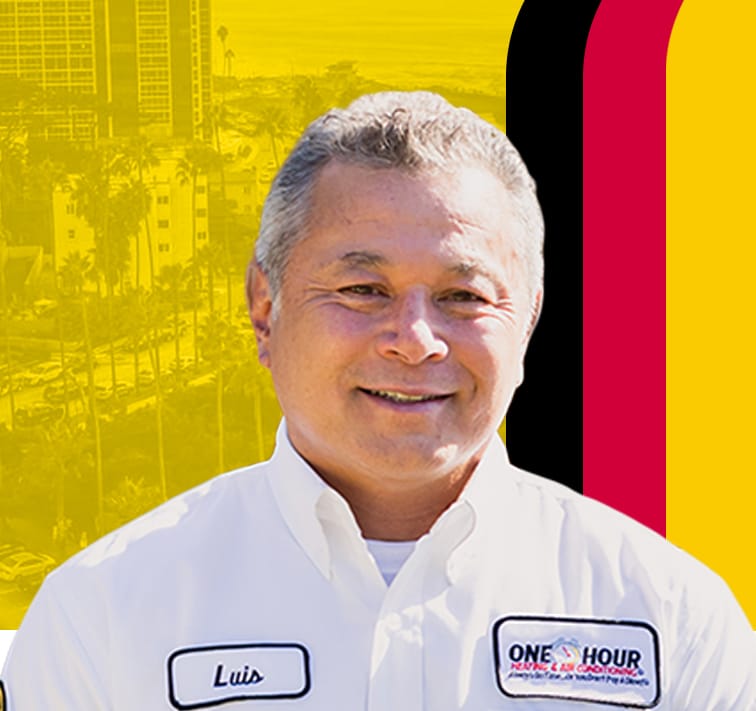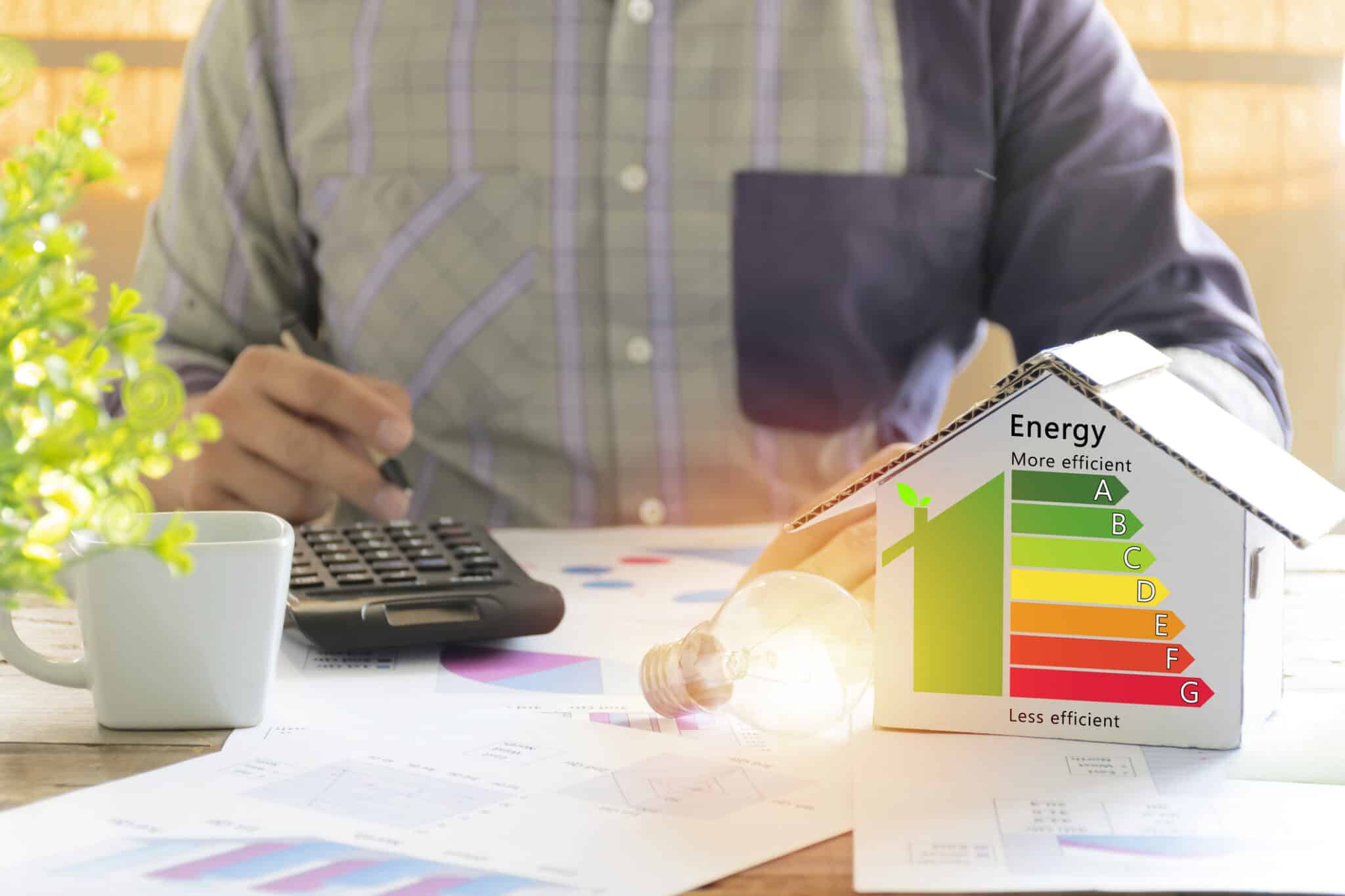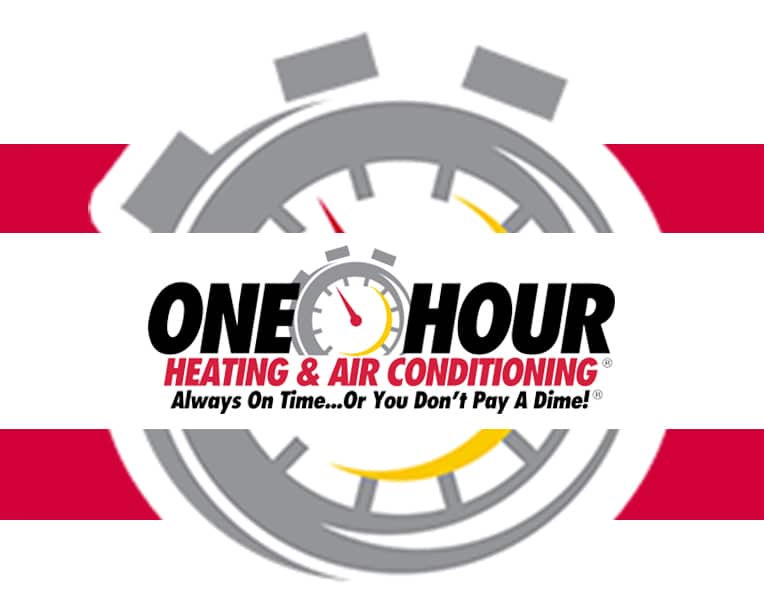Energy bills too high? Smart HVAC upgrades could be the solution to saving money while keeping your home comfortable year-round. Traditional heating and cooling systems often run inefficiently, consuming more energy than necessary.
Over time, this leads to higher energy bills and increased wear on your HVAC system. However, smart HVAC upgrades leverage advanced technologies like automation, sensors, and energy-efficient components to optimize performance and reduce waste.
Understanding Smart HVAC Upgrades
What Are Smart HVAC Systems?
Smart HVAC systems go beyond the on-and-off functionality of older systems by using advanced technologies to maximize performance. These systems are equipped with sensors to detect temperature changes, occupancy, and even outdoor weather conditions to adjust operation automatically.
They integrate with mobile apps, allowing you to control your system from anywhere, whether you’re at work, on vacation, or just lounging on the couch.
The system learns your preferences over time, creating customized settings that keep your home comfortable without requiring constant manual adjustments. Smart HVAC systems are a significant step forward in combining convenience, efficiency, and performance.
Key Features of Smart Upgrades
Smart HVAC upgrades come with a range of features designed to make life easier and energy costs lower. One key feature is automated temperature control, which adjusts heating or cooling based on real-time needs, avoiding unnecessary energy use.
Remote operation through mobile apps gives you the ability to control your system even when you’re not at home. Energy usage tracking provides detailed insights into how your system is performing and highlights areas where you can save even more energy.
Some systems even include advanced zoning options, allowing you to control temperatures in individual rooms or areas for maximum efficiency. Together, these features ensure your system runs efficiently, reducing waste and lowering energy bills.

Benefits of Smart HVAC Upgrades
Reduced Energy Costs
One of the most significant benefits of smart HVAC systems is their ability to cut down on energy expenses. By using sensors and data to optimize when and how your system runs, smart systems prevent energy from being wasted on unnecessary heating or cooling.
Features like zoning and automated temperature adjustments ensure energy is only used where and when it’s needed.
Additionally, real-time energy tracking gives you insights into your usage patterns, helping you identify areas where you can save even more. Over time, these systems pay for themselves by significantly reducing your monthly energy bills.
Improved Comfort
Smart HVAC systems ensure your home stays comfortable at all times by maintaining consistent temperatures. Unlike traditional systems, which may cause uneven heating or cooling, smart systems use advanced technology to balance temperatures throughout your home.
Zoning features allow you to customize the comfort level in specific areas, so every room feels just right. They also adapt to changing weather conditions and your daily routine, ensuring the temperature is perfect when you need it. This level of precision creates a more enjoyable living environment for you and your family.
Increased Longevity
Smart HVAC systems not only work efficiently but also extend the lifespan of your equipment. These systems monitor their own performance and notify you of maintenance needs before small issues become costly repairs.
Regular performance checks and alerts for things like filter changes or component wear help keep everything running smoothly.
By avoiding unnecessary strain on the system, you reduce the risk of breakdowns and extend the life of critical parts. Over the years, this translates to fewer repair costs and a more reliable heating and cooling system for your home.
Environmental Impact
Reducing your home’s carbon footprint is easier with a smart HVAC system. These systems use energy more efficiently, which means less electricity or fuel is consumed to maintain a comfortable environment.
By cutting down on energy waste, smart systems help lower greenhouse gas emissions. Many models are also designed with eco-friendly materials and technologies to support a more sustainable lifestyle.
Choosing a smart HVAC system is a simple but impactful way to make your home greener and more energy-conscious. With this upgrade, you can feel good knowing you’re doing your part for the environment.
Enhanced Convenience
Smart HVAC upgrades are all about making your life easier. With the ability to control your system remotely via mobile apps, you can adjust temperatures, set schedules, and check performance from anywhere.
Automated features take the guesswork out of managing your system, ensuring it’s always running efficiently. Many systems even provide performance insights in real-time, so you know exactly how well your HVAC is operating.
The convenience of managing your home’s comfort with just a few taps on your phone is hard to beat. Smart systems take the hassle out of heating and cooling, letting you focus on what matters most.
Popular Smart HVAC Upgrades
Smart Thermostats
Smart thermostats are one of the easiest and most impactful upgrades you can make. They learn your habits, like when you’re home or away, and adjust the temperature automatically to save energy.
For example, in San Diego, CA, a smart thermostat might keep your home cooler during the day and warmer in the evening without you even thinking about it.
You can also control them remotely through an app, so you’ll never have to worry about forgetting to turn off the air conditioning. Over time, this upgrade can significantly reduce your energy bills while keeping your home comfortable.
Zoned Heating and Cooling Systems
Zoned systems give you the ability to control the temperature in different parts of your home independently. This means you can cool your living room during the day and keep your bedroom cozy at night without wasting energy on unused spaces.
For homes with multiple floors or areas that heat and cool unevenly, this upgrade is a game-changer. Not only does it improve comfort, but it also reduces the workload on your HVAC system, extending its lifespan. With zoning, you’re in control of how and where energy is used in your home.
Variable Speed Fans and Compressors
Traditional systems operate at a fixed speed, which can lead to energy waste and uneven comfort. Smart systems with variable speed fans and compressors adjust dynamically based on your home’s needs.
For instance, they might run at a lower speed when less cooling or heating is required, using less energy while maintaining a consistent temperature.
This technology improves efficiency, keeps your home more comfortable, and reduces wear and tear on your system. It’s a simple upgrade that delivers big benefits over time.
Smart Air Quality Sensors
Indoor air quality plays a big role in your overall comfort and health, and smart air quality sensors ensure your home stays fresh and clean. These sensors monitor for things like humidity, allergens, and pollutants and adjust your ventilation system to address any issues.
If the air is too dry or if allergens are detected, the system can automatically make adjustments to keep your home feeling great. For those who struggle with allergies or respiratory issues, this upgrade is especially beneficial.
How Smart HVAC Upgrades Reduce Energy Costs
Energy Optimization
Smart HVAC systems are designed to operate based on real-time data from your home and the environment. They analyze patterns, such as when you’re home or away, and adjust settings accordingly to avoid wasting energy.
For example, if the system senses no one is home, it can reduce heating or cooling until you return. In San Diego, CA, where temperatures can vary throughout the day, this ensures your system runs efficiently without overworking. By only using energy when it’s needed, your system becomes more cost-effective and environmentally friendly.
Reduced Energy Waste
Traditional systems often run unnecessarily, wasting energy on empty rooms or when no one is home. Smart HVAC systems eliminate this waste by using sensors and zoning to heat or cool specific areas of your home.
For instance, if you’re spending time in the living room, the system can focus its efforts there while leaving other areas at a neutral temperature. This precise control means you’re not paying for energy that isn’t being used, helping you save money every month.
Maintenance Alerts
One often overlooked way smart HVAC upgrades reduce energy costs is through maintenance notifications. These systems monitor performance and alert you when something needs attention, such as a dirty filter or a component that’s underperforming.
Fixing these issues early ensures your system runs at peak efficiency, preventing energy from being wasted. Regular maintenance not only reduces your energy bill but also helps you avoid expensive repairs in the future. It’s a proactive way to keep your system running smoothly without added stress.
Factors to Consider Before Upgrading
Compatibility With Your Existing System
Not all existing HVAC systems are ready to support Smart HVAC Upgrades without some adjustments. It’s important to check whether your current setup can handle components like smart thermostats, zoned systems, or advanced sensors.
Some upgrades might require additional equipment or modifications to your system to work seamlessly.
For instance, older systems may need updated wiring or specific connections to integrate smart technology. Consulting a professional ensures that your home is fully compatible and ready for a smooth upgrade to a smart system.
Professional Installation
Installing Smart HVAC Upgrades isn’t a simple DIY project—it requires expertise to set everything up correctly. Professionals can ensure that your smart components, such as thermostats, sensors, and zoning systems, are integrated properly with your existing system.
Incorrect installation can result in reduced efficiency and poor performance, defeating the purpose of the upgrade. In San Diego, CA, where temperature control is essential year-round, hiring an experienced HVAC technician ensures your system operates at peak performance and delivers the energy savings you expect.
Local Energy Rebates
A big perk of Smart HVAC Upgrades is the potential for savings beyond your energy bill. Many utility companies and local governments, especially in environmentally conscious areas like San Diego, CA, offer rebates or incentives for upgrading to energy-efficient systems.
These programs can significantly offset the initial costs of smart HVAC components, making the investment even more worthwhile. Be sure to research what’s available in your area and discuss these options with your installer to take full advantage of potential discounts or rebates.
Common Misconceptions About Smart HVAC Upgrades
Too Expensive
One of the biggest myths about Smart HVAC Upgrades is that they’re too expensive for the average homeowner. While it’s true that the upfront cost can be higher than traditional systems, the long-term savings on energy bills often outweigh the initial investment.
Smart systems operate more efficiently, significantly reducing wasted energy and lowering monthly costs. Additionally, many homeowners in areas like San Diego, CA, can take advantage of rebates or incentives to offset the price.
When you factor in the savings and extended system lifespan, Smart HVAC Upgrades prove to be a cost-effective choice.
Difficult to Use
Another misconception is that Smart HVAC Upgrades are complicated or require advanced technical knowledge.
In reality, these systems are designed with user-friendly interfaces that make them simple to operate. Most smart thermostats and apps are intuitive, allowing you to easily adjust temperatures, set schedules, and monitor energy usage.
For example, with just a few taps on your phone, you can cool your house before you arrive home or check if your system is running efficiently. These upgrades make managing your HVAC system easier, not harder.
Only for New Homes
Some people think Smart HVAC Upgrades are only suitable for brand-new homes with the latest technology, but this isn’t the case. Many smart components, such as thermostats, sensors, and zoning systems, can be retrofitted to existing HVAC setups.
Even older systems can benefit from upgrades that improve efficiency and add modern functionality. In cities like San Diego, CA, where many homes blend modern and traditional designs, retrofitting smart technology is a practical and effective solution.
Minimal Energy Savings
A common myth is that Smart HVAC Upgrades don’t save enough energy to make them worthwhile. This couldn’t be further from the truth. Smart systems are specifically designed to reduce energy waste by optimizing when and how your HVAC operates.
Features like zoning, automated scheduling, and real-time monitoring allow for precise control, cutting down on unnecessary energy use. Over time, these small adjustments add up to significant savings, often reducing energy costs by 10-30%.
Why Professional Installation Is Important
Ensures Proper Integration
Professional installation guarantees that all components of your Smart HVAC Upgrades are integrated seamlessly. A smart thermostat, for example, needs to communicate effectively with the rest of your system, including sensors, zoning features, and variable speed fans.
Technicians have the knowledge to ensure these components work together, avoiding compatibility issues that could compromise performance. Proper integration also ensures that your system can operate at its highest efficiency, delivering the energy savings and comfort you expect.
Maximizes Efficiency
Even the most advanced Smart HVAC Upgrades won’t deliver their full potential if they’re not installed correctly. Professionals have the expertise to calibrate your system so that it operates at peak efficiency.
This includes fine-tuning features like temperature sensors, airflow, and zoning controls to ensure optimal performance. By maximizing efficiency, professional installation helps you achieve the greatest possible reduction in energy costs while keeping your home comfortable in every season.
Tailored Recommendations
Every home is different, and professional installers can provide personalized advice to make sure your Smart HVAC Upgrades are the best fit for your space. They can assess factors like the size of your home, its layout, and your energy usage patterns to recommend the most effective upgrades.
For example, in San Diego, CA, a technician might suggest zoning systems to accommodate different temperature needs in specific rooms or floors. Tailored recommendations ensure that your system is not only efficient but also perfectly suited to your lifestyle.
Upgrade Your Comfort and Save Big in San Diego Today!
Ready to lower your energy bills and enjoy year-round comfort? At One Hour Heating & Air Conditioning San Diego, we specialize in seamless Smart HVAC Upgrades tailored to your home.
Whether it’s installing a smart thermostat or optimizing your system, we’ll help you save energy while keeping your home cozy. Contact us now to schedule your upgrade and experience the smart way to heat and cool in San Diego!

Frequently Asked Questions (FAQs)
1. How much can I save with Smart HVAC Upgrades?
Smart HVAC systems are designed to optimize energy usage, which can result in significant savings. On average, homeowners can save between 10-30% on their annual energy bills, depending on the upgrades and how they’re used.
2. Are Smart HVAC systems difficult to maintain?
Not at all! In fact, most Smart HVAC Upgrades make maintenance easier by offering features like real-time performance monitoring and automated alerts. These systems notify you when something needs attention, such as replacing filters or scheduling a service, so you don’t have to guess or remember.
3. Can I control Smart HVAC systems remotely?
Yes, remote control is one of the biggest advantages of Smart HVAC Upgrades. Most systems come with user-friendly mobile apps that allow you to adjust the temperature, set schedules, and monitor energy usage from anywhere.
4. Are Smart HVAC Upgrades worth the investment?
Absolutely. While the initial cost might seem high, the long-term benefits far outweigh the expense. Smart systems reduce energy costs, improve comfort, and extend the lifespan of your HVAC equipment.
5. Can I install Smart HVAC components in an older home?
Yes, most Smart HVAC Upgrades can be retrofitted to work with existing systems, even in older homes. For example, smart thermostats and zoning features are compatible with many traditional HVAC setups.



















